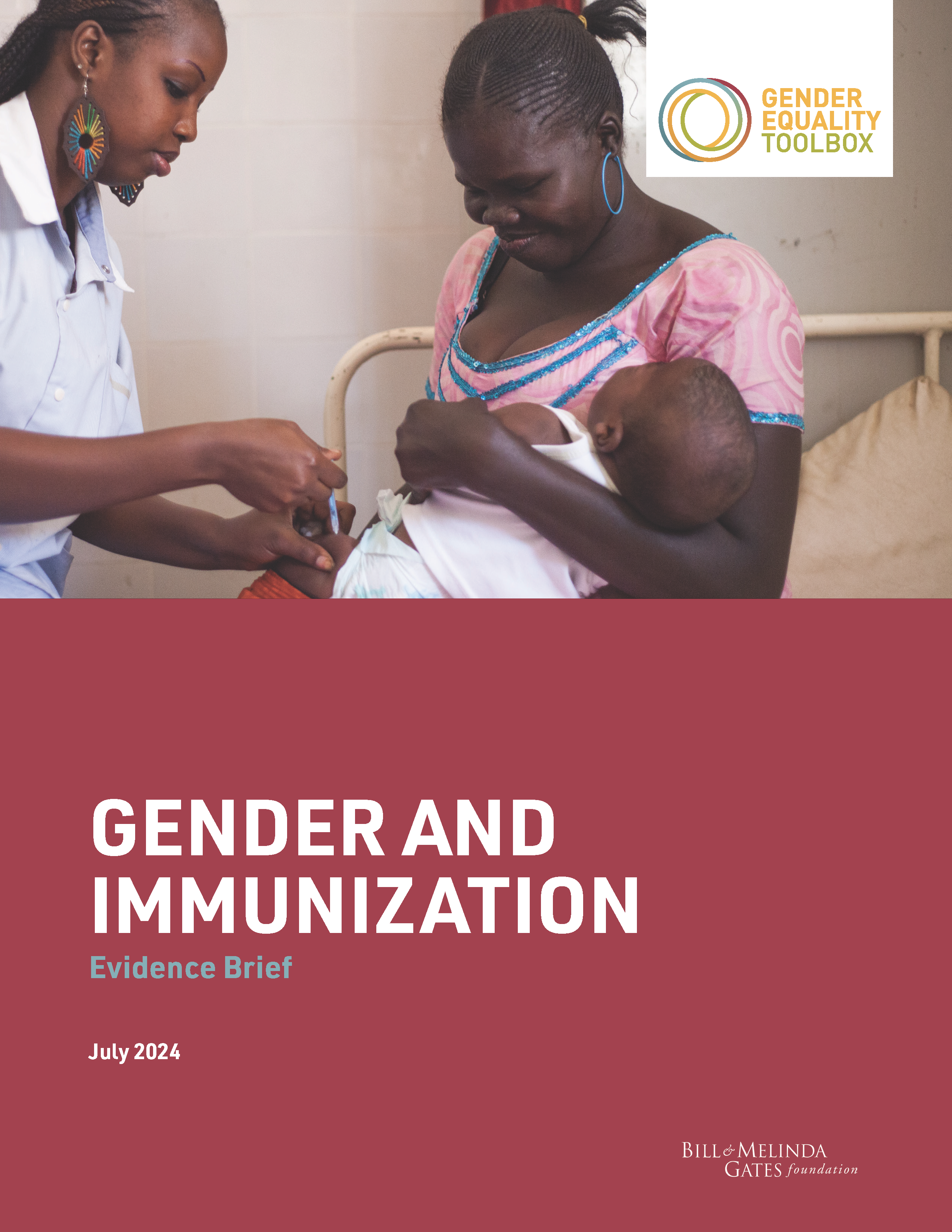
Gender and Immunization Evidence Brief
This scoping review evaluates what is known about the influence and relevance of gender barriers to immunization and gender-intentional interventions for improving immunization sector outcomes in low- and middle-income countries (LMICs). Taken together, the evidence described in this review makes a compelling case that failing to address the significant gender barriers to immunization will impede efforts to reach children, adolescents, and adults in lower-income countries with the vaccines they need to live a life free from vaccine-preventable diseases. In other words, we find that gender barriers are highly salient across South Asia and sub-Saharan Africa, and that cost-effective adaptations to existing vaccination programming to address these barriers could significantly accelerate global immunization objectives. Evidence on interventions to address gender barriers is limited and more research is needed to understand what works to address these barriers to immunization coverage.
Based on this evaluation of the existing evidence base, the report offers recommendations in three areas: (1) a data and learning agenda, (2) piloting gender-intentional immunization programming, and (3) making use of the insights from gender analysis to inform important new areas of investment in reaching zero-dose populations and the introduction and scaling of new vaccines, such as HPV.